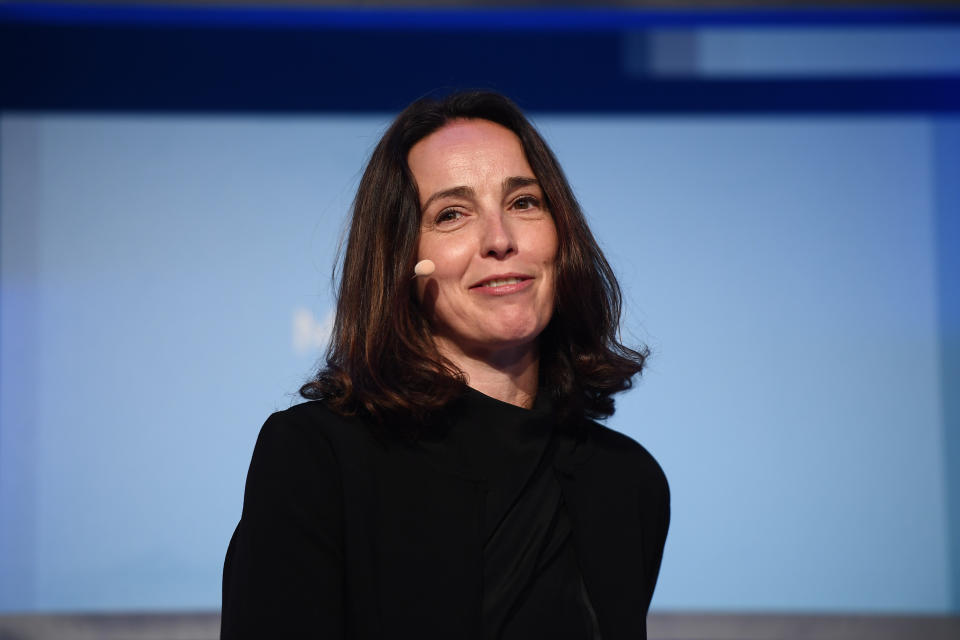Friendly Canadians give Nextdoor its best international launch ever

Nextdoor, a social media platform aimed at connecting neighbourhoods, says its recent launch in Canada has been its most successful international expansion yet, with tens of thousands of new users signing up within weeks of launching.
“Frankly, I think we’re a little late coming here,” Nextdoor’s chief executive Sarah Friar said in an interview with Yahoo Finance Canada.
“Canada should have been higher up on the list because we’re already seeing so much traction. It’s really a no-brainer market for us.”
More than 3,000 neighbourhoods across the country have been added to Nextdoor since it launched, with “tens of thousands” of Canadians using it each day, says the startup’s spokesperson Erica Archambault McCabe. She pointed to the more than 1,000 people from Alberta’s Chestermere area that have signed up as “an exciting indicator of how well Canadian members are responding to our platform.”
Nextdoor – which launched in 2011 and now operates in 11 countries in nearly 250,000 neighbourhoods – connects verified users living in the same neighbourhood on its platform. Unlike Facebook and Twitter, where users can sign up quickly, easily and anonymously, Nextdoor prompts users to verify their address online via a phone bill or geo-location, or through a verification code sent in a postcard.
For Mark Scantlebury, a resident of the Mahogany neighbourhood in southeast Calgary, it’s the verification process and opportunities to connect with real people that has made Nextdoor an appealing alternative to the Facebook group his community uses. He’s used Nextdoor to connect with neighbours who have children the same age as his own. He also turned to the platform when he had a plethora of lettuce in his garden that he wanted to give away.
“Nextdoor has helped take our neighbourhood to a new level,” he said.
While it offers similar features as other social media networks – including a newsfeed that shows community posts – Friar said that the “fairly hardcore verification process” is the key differentiator between Nextdoor and other platforms that are used to connect with friends and neighbours.
“We make sure that it’s a real person, at a real address,” Friar said.
“It’s probably somewhat slowed down our growth, but it allowed us to be very intentional about it... I feel we can stand in front of all our neighbours and say these are real people using the app.”
Pursuing growth through advertising
Still, Nextdoor aims for profitability through advertising, just as Facebook, Twitter and others have before it. Friar says the company offers a “very pointed reach” that other social media platforms don’t.
“We don’t sell data from Nextdoor. We don’t sell anyone’s name, address or phone number,” Friar said. “I think the No. 1 thing that makes us different is we’re hyper-local... and (have) the ability to effectively push people from an online experience to an offline experience.”
Friar cites Tim Hortons as one of the brands she would like to see Nextdoor partner with in the future, by pointing users to promotional items throughout the year. The company also plans on hiring an engineering team in Canada that Friar hopes can develop products that are specific to the Canadian audience.
Investors appear to be intrigued by Nextdoor’s growth potential. Last month, Nextdoor closed a US$170 million round of funding led by Bond, a global technology investment firm that has previously invested in Airbnb, Facebook, Peloton and Pinterest.
But like most social media platforms, Nextdoor has received its share of criticisms, specifically when it comes to regulating users’ behaviour and racial bias. The company has come under fire over the last several years over instances of racial profiling.
It’s part of the reason why the company launched the Kindness Reminder, a feature which prompts the user to reconsider a post that includes language previously flagged as offensive or hurtful.
“What we’re trying to do is recreate that feeling of local proximity to someone and how you would act with them,” Friar said, adding that about 30 per cent of users have opted to change what they wrote before posting.
“That’s something that we want to do with our technology, which is very different from what we’ve seen with other platforms.”
Download the Yahoo Finance app, available for Apple and Android.


